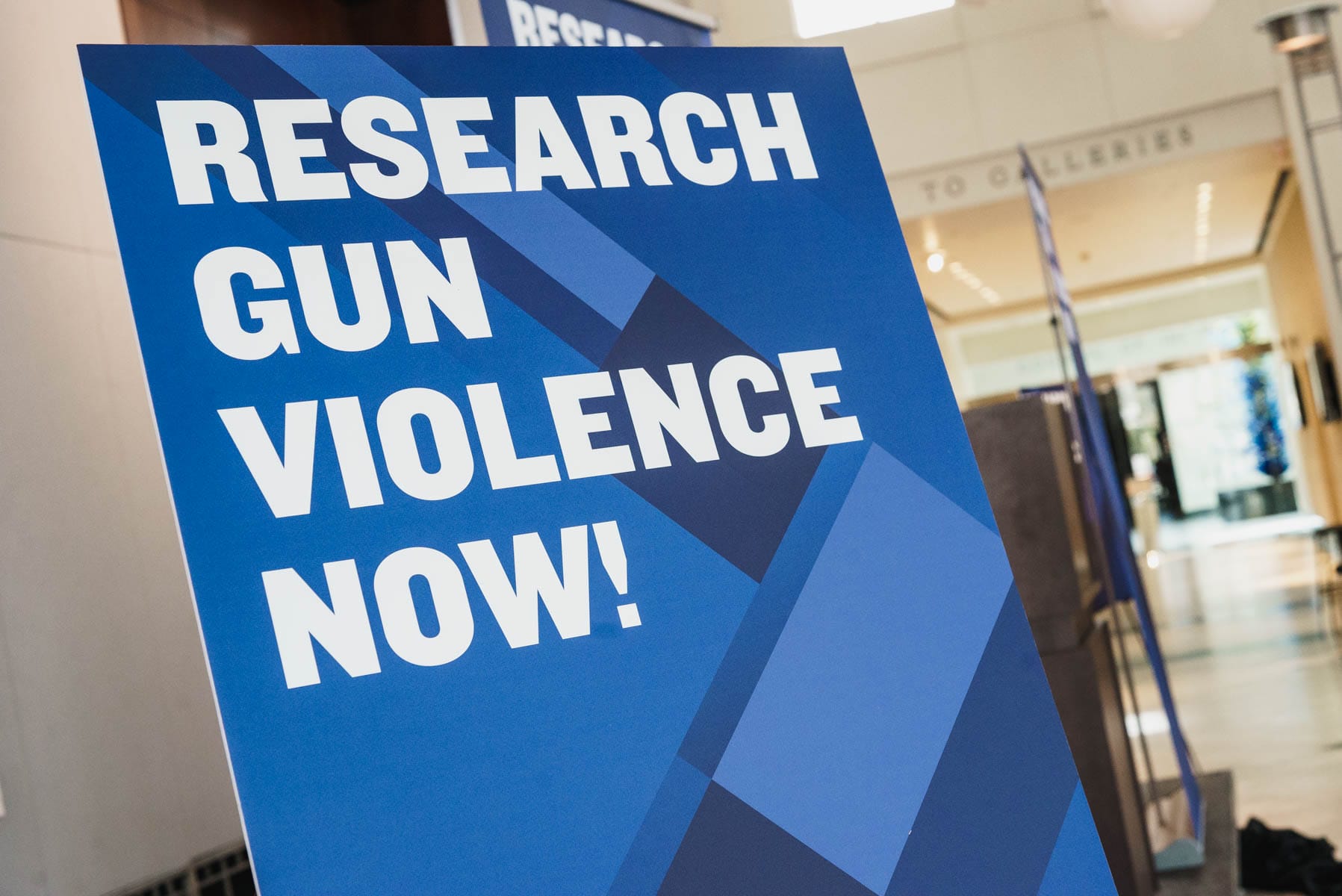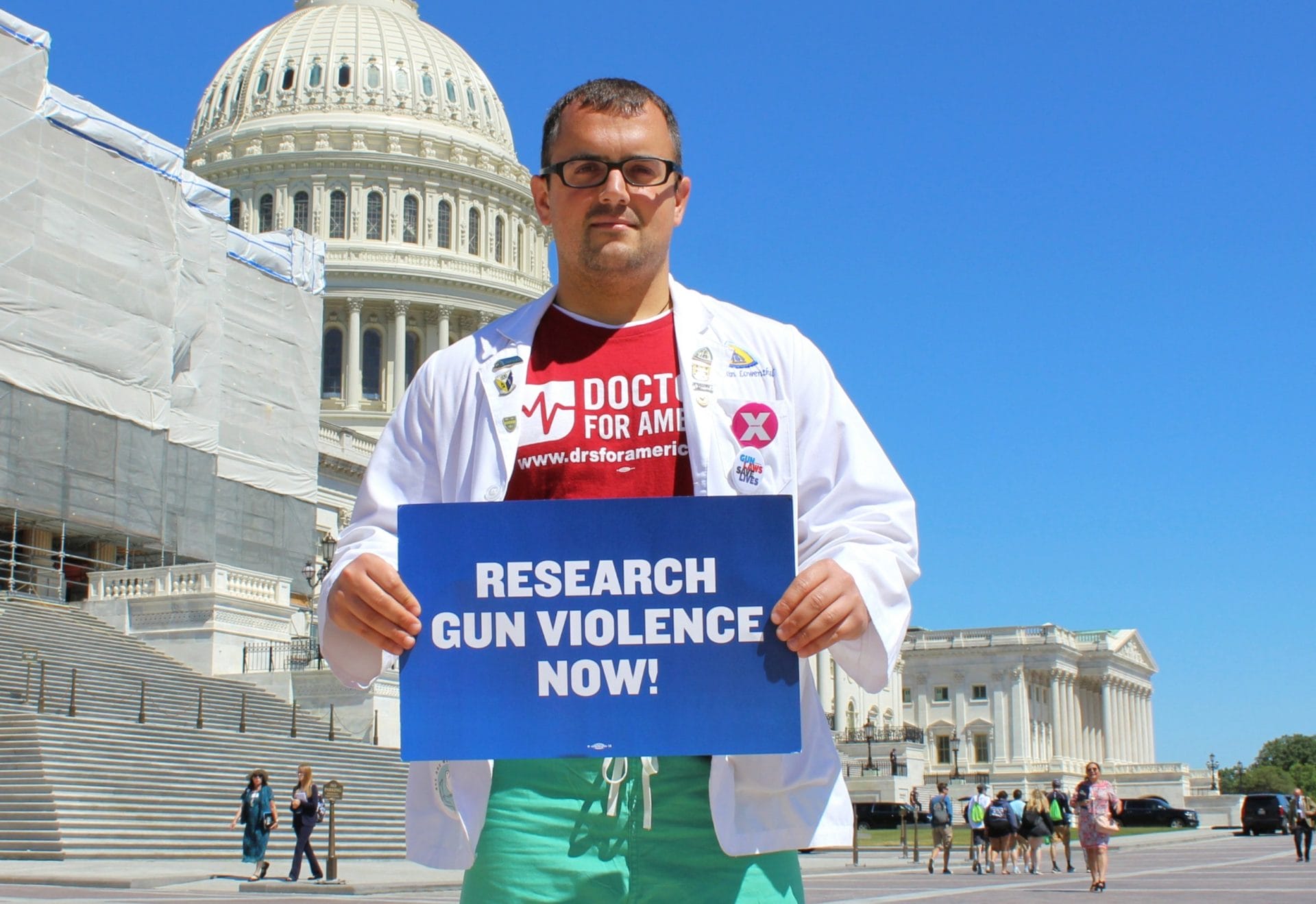
Our Patients, Our Lane: Why Congress Must Fund Gun Violence Research
This past weekend, El Paso and Dayton were the latest American communities torn apart by gun violence. We know that these mass shootings, as well as every day gun violence, are widespread public safety issues. All Americans deserve to live without fear. We cannot let these tragedies become normalized.
It is more important now than ever that we invest in vital research to study the gun violence crisis, including its causes and effective solutions.
We are a group of medical students who attend Northwestern University in Chicago. As healthcare professionals-in-training, we are privy to the most intimate and traumatizing details of other people’s lives. This privilege makes our work both incredibly demanding and rewarding. We carry the stories we hear from our patients with us forever.
The obligations of the white coat we wear do not disappear when we leave the clinic, the wards, or the operating room. We believe it is our responsibility to use our knowledge and our voices to improve people’s health in every way—even at the legislative level. It’s not political, it’s just good patient care.

When a patient suffers a firearm injury, a new and difficult future unrolls at their feet. But we know that these injuries, and this pattern, can be prevented. These futures are not inevitable, but a product of our own collective inaction.
Violence prevention programs and gun safety laws have been proven to be effective. It’s heartbreaking that there are ways to prevent tragedies and yet we tend to ignore them. We need to put our money where our mouths are, and that means funding research into gun violence.
A Public Health Crisis of Epic Proportions
There may be no better example of the effects of gun violence on communities than what unfolds in our city on a daily basis. Nearly 3,000 people were shot in Chicago in 2018, and nearly 1,500 have been shot so far in 2019. The majority of homicides in Chicago are the result of gun violence. The scope of the firearm epidemic in this city and our country cannot be overstated.
There are also large disparities in who is affected by gun violence. The majority of the victims of gun violence in Chicago, for example, are young black men. Cycles of poverty, housing instability, and racism that have been entrenched in some Chicago neighborhoods for generations are further perpetuating this violence. By neglecting the epidemic of firearm injury and death, we fail these communities. We must take steps to change the status quo. We must not leave our most vulnerable patients behind.
We know that violence begets more violence and that communities and families across the country are torn apart by gun violence on a daily basis. We know this because we have studied the numbers, but we also know this because our patients have told us.
Firearm trauma is a particularly morbid injury, causing significant long-term consequences, including physical and mental problems such as physical disability and post-traumatic stress disorder. Aside from the injury itself, children who are exposed to Adverse Childhood Experiences such as violence have higher rates of other chronic medical conditions, including diabetes, heart disease, and stroke, later in life. We treat these diseases every day.
Gun violence is undeniably a public health issue, and the medical community has taken note. The magnitude of this crisis has pushed healthcare professionals to proactively seek to prevent deaths and injuries from occurring. The role that we as healthcare providers play in treating victims of gun violence demands that we also advocate for research and policy changes to address this public health crisis.
We Can’t Solve What We Don’t Understand
Recently, a House of Representatives panel allocated $50 million to the CDC and the NIH to study “how to prevent firearm injury and death” as part of the House Labor-HHS-Education 2020 funding bill. This bill has already passed the House, but passing this bill in the Senate will likely be an uphill battle.
We know that when governments put funding towards addressing public health issues, legislators are able to craft policy that saves lives. We’ve done it with research into the effects of tobacco, investigations that made our cars safer, and studies that made breakthrough drugs to treat some of the world’s deadliest diseases. And yet, despite the high morbidity and mortality of gun violence, our federal government hasn’t researched it in years. Gun violence research has less research funding per death than any other leading cause of death.
[RELATED: Learn about gun violence research.]
There is a historical reason for this disparity. The Dickey Amendment, passed by Congress in 1996, prevented the CDC from using federal funds for advocacy surrounding firearms. Funding that had been allocated to gun violence research, about $2.6 million, was also cut that same year. Though technically there was never a ban on studying gun violence, the fear of cuts to funding effectively stopped all research on the subject.
In March of 2018, the language in the Dickey Amendment was changed. It now clarifies that “the CDC has the authority to conduct research on the causes of gun violence.” But experts believe that until Congress actually allocates funding to this research, not much will change.
What’s Next?
We are at a pivotal moment in American politics. Although we are in a period of immense political turmoil, it is also a time of great opportunity. The #ThisIsOurLane movement has helped ignite a rich dialogue about the role of doctors and other medical professionals in the gun violence debate. A new congressional class with lots of energy and innovative new ideas has taken office. And a record number of Members of Congress have STEM backgrounds.
As healthcare providers and the future doctors of America, we know that how our nation addresses our gun violence epidemic will have real consequences for our patients. Understanding this crisis can change policy, and that change can save lives.
Now is the time to put pressure on our legislators. We encourage each of you to reach out to your senators and ask them to support allocating funding for the CDC and NIH to research firearm violence.